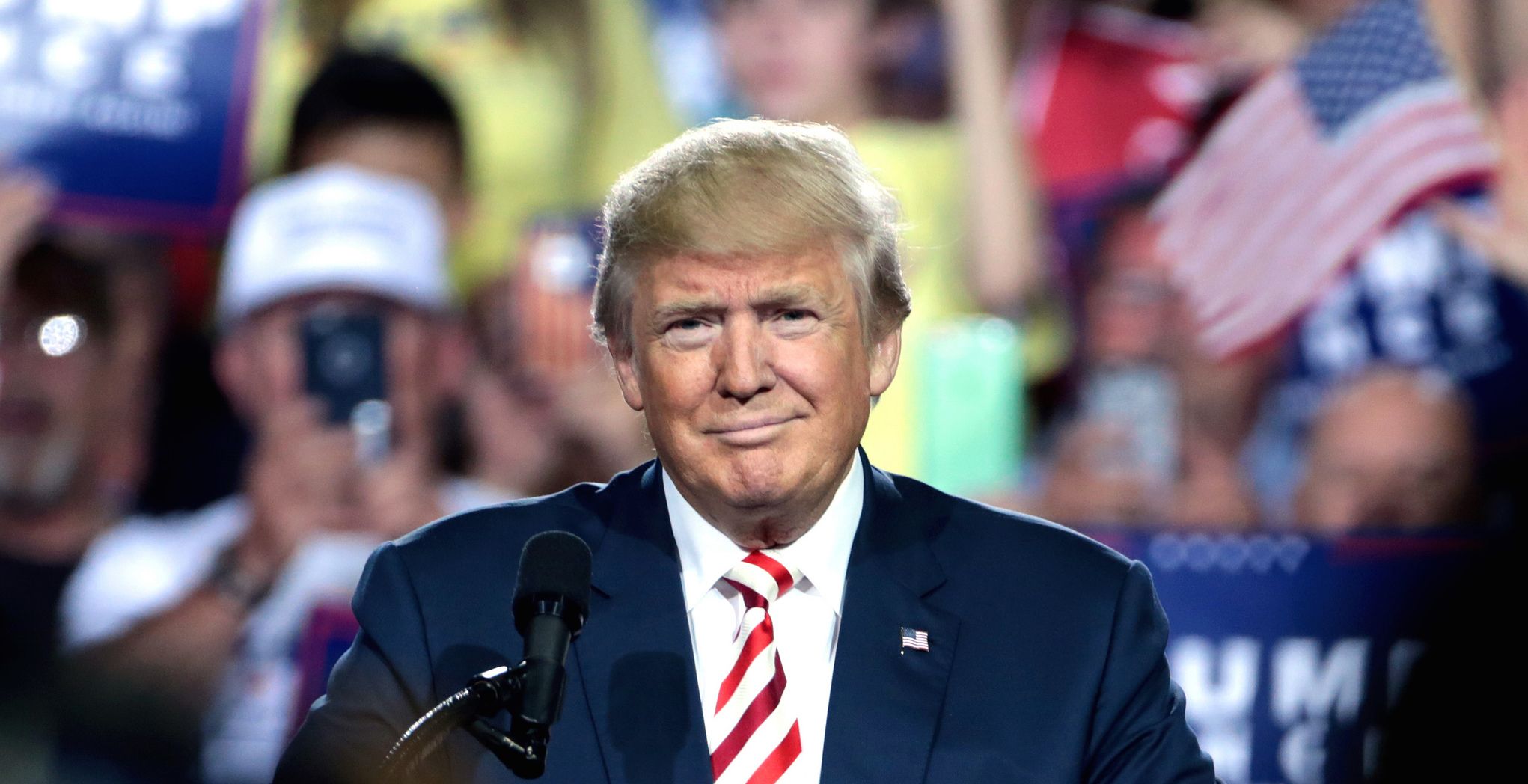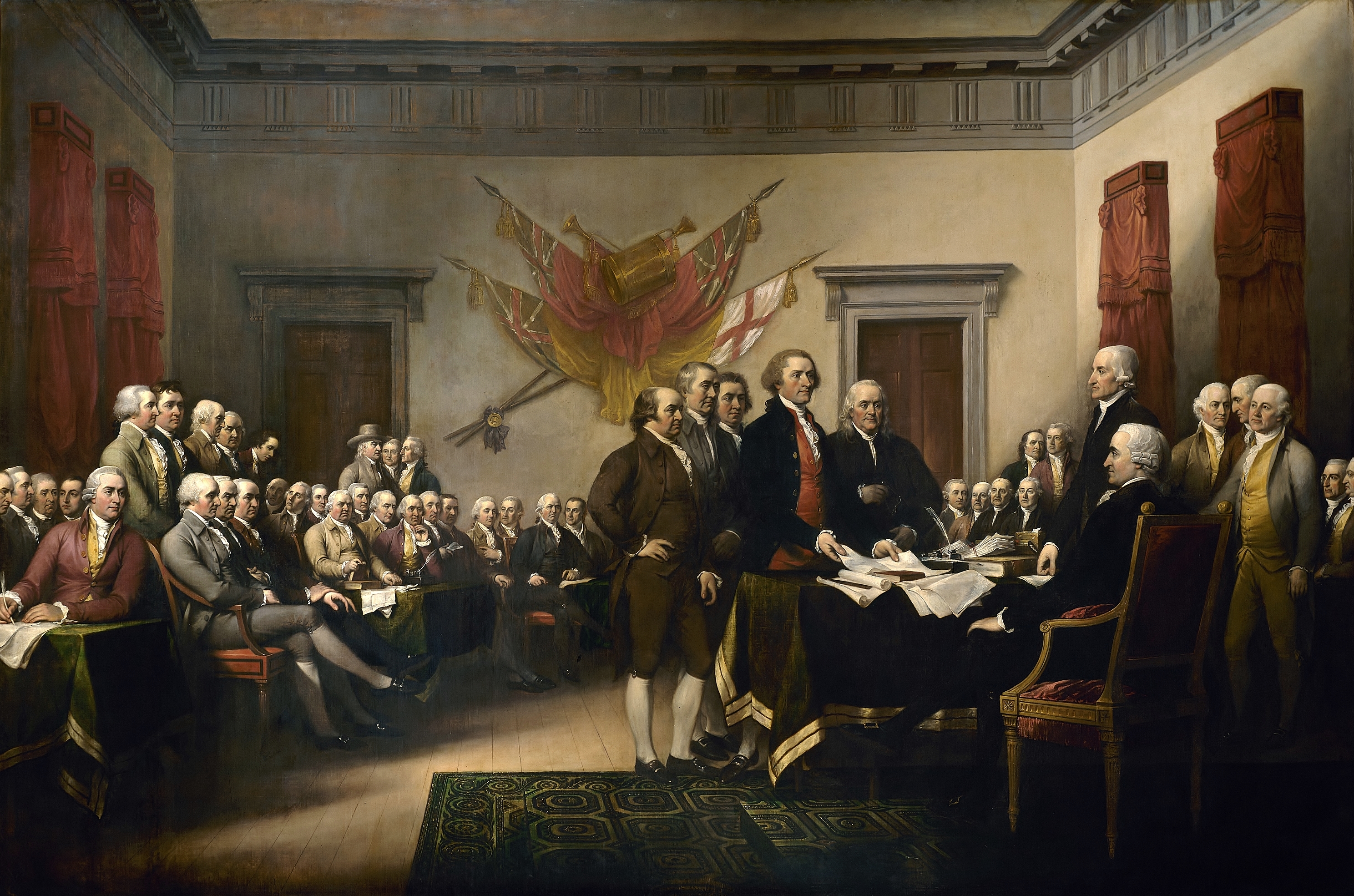
Politics & Society
Donald Trump and the uneasy alliance

Trump’s presidency is directly at odds with the Founding Fathers’ ideals for the office to be one of virtue and dignity
Published 11 July 2017
The Founding Fathers of the United States emphasised the conditions necessary for a stable and lasting republic: a system of codified laws and government, a democratic mechanism for the formation of government and a belief that all office bearers conduct themselves as moral and virtuous leaders.
For no office bearer was this last condition more important, they felt, than the presidency.
The Founders lived by a set of carefully considered values, and the country’s 44 presidents have attempted – with mixed success – to do the same. The 45th President makes no such effort.
In making the philosophical case for independence and the Republic, the Founders stressed the need for virtue in office. In Federalist 68, (one of eighty-five essays urging the citizens of New York to ratify the new Constitution) Alexander Hamilton (one of the founding fathers) wrote that “the distinguished office of president” requires that a candidate have “merit to establish him in the esteem and confidence of the whole union”.

In Federalist 57, James Madison wrote that the Constitution ought to obtain rulers who possess “most virtue to pursue the common good of the society.”
They were clear that virtue and dignity were critical for a president. But how was virtue defined?
On the one hand, by the Founders’ ideal of Christ: charitable, thoughtful, forgiving. And, on the other hand, virtue was defined by more humanist and Enlightenment values: by a person’s willingness to respectfully listen, debate, and philosophically engage with others’ ideas.

Politics & Society
Donald Trump and the uneasy alliance
Instead, the behaviour of the 45th President, Donald Trump, has raised vexing questions (putting aside, for the moment, emoluments scandals or the ‘Russia issue’) – should a president be impeached because of their extreme crassness? And, should the 25th Amendment, which sets out the procedures for replacing a president, be invoked?
These legal and ethical questions are unclear (though the use of the 25th is almost certainly a non-starter).
However, what is clear is the intent of the Founders – the President should be of outwardly exemplary behaviour, even if inwardly confounded by moral or philosophical demons.
To that end, President Trump is fundamentally failing the intent of America’s Founding Fathers. And Twitter, of all things, is the principal means by which he does so.
Presidential tweets are new, but they pre-date Trump. Barack Obama used them to augment his communications. He tweeted press bulletins, considered statements of support or condemnation on matters of national importance, and on occasional moments of rather tame levity.
From this family to yours, happy Thanksgiving. pic.twitter.com/OPGyjTF8
— Barack Obama (@BarackObama) November 22, 2012
Importantly, they were considered and restrained, and in keeping with the careful deliberation of the departments of the US executive. Policy statements were not made on the fly, at 2am, nor were they made in response to what some celebrity said, or from some journalistic or personal slight.
Happy Thanksgiving to all--even the haters and losers!
— Donald J. Trump (@realDonaldTrump) November 27, 2013
By contrast, Trump’s tweets are frequently viscous and petty. He routinely attacks political opponents, but devotes most of his time to attacking the media.
Many leaders believe that the media is biased against them, but Trump’s assault is relentless and unprecedented. He seems to believe that the media is not only out to get him (which arguably is its job), but that, in turn, it deserves to be viciously – even violently – mocked and vilified.
I heard poorly rated @Morning_Joe speaks badly of me (don't watch anymore). Then how come low I.Q. Crazy Mika, along with Psycho Joe, came..
— Donald J. Trump (@realDonaldTrump) June 29, 2017
Beyond spats with celebrities and political rivals, it is the President’s relentless assault on the press that is most concerning.
Trump attacks the “mainstream media”, but this is a dog whistle to supporters. He is actually referring to those who disagree with him. Fox and Friends, Breitbart, and other friendlies are okay, but every non-supportive platform is “fake news”.
By no means does this live up to the intents of the Founders. They wanted to get away from the tyrannical British King, not create their own American one. From this came the “Madisonian system” of checks and balances.
Any decent civics class teaches that American government is Madisonian in design. It is tripartite and democratic, and it is constituted by the executive, legislative, and judicial branches at state and federal levels.
That same civics class would then recognise that a well-informed electorate is essential to the proper function of the US system.
And, as we cannot expect individual members of that electorate to be experts, they must rely on representatives in government, and an independent watchdog to assist them in making their democratic choice. That watchdog, more than any other, has always been the “Fourth Estate” – the journalistic media.
So, for a President to assault the Fourth Estate is to assault democratic ideals.
One of Trump’s latest tweets depicts a violent confrontation between him (at a wrestling match), and a hapless proxy representing CNN (and, per Trump’s tweets, the “mainstream media”).
#FraudNewsCNN #FNN pic.twitter.com/WYUnHjjUjg
— Donald J. Trump (@realDonaldTrump) July 2, 2017
The imagery is juvenile, but profound when used by a President. The implication, that violence against the media (literal or figurative) is not only acceptable, but to be celebrated, is reprehensible.
So far, Trump’s most recent anti-media tweet has led to yet another round of condemnation and shock. Ironically, the Reddit user from which the meme originated apologised for posting the video, yet the President remains unrepentant, indignant.
A Reddit user posting a silly (if somewhat violent) video is not a serious matter, nor is it a matter for national consternation. A President posting that same video, however, is a serious matter: both a cause for serious consternation and condemnation.
That, in a nutshell, is the central problem with Donald Trump’s presidency. He, like his supporters, insists that we hold him to the standard of a layperson, but fails to recognise that the ideal of his office is one of moral, as well as pragmatic, leadership. He also fails to recognise that the average person, as with the “Reddit troll” mentioned before, actually lives up to a generally higher standard: capable of reticence and introspection in a way that their president is not.
When the term “bully pulpit” was coined, it referred to the anachronistic understanding of “bully”, which essentially meant “good news”. To that end, the pioneers of the bully pulpits in early 20th century American presidencies dedicated themselves to rallying the spirits of the country (even in the darkest of times), and tried to exude high moral standards.

Politics & Society
Trump + Twitter: Unfettered honesty or unchecked vitriol?
This can no longer be said to be true. Instead, the President’s bully pulpit has adopted a contemporaneous meaning – it is used, via Twitter, to intimidate or ridicule.
And yet, it is excused away by supporters. The justification for the President’s basest behaviour falls under the banner of “populism” and “accessibility”. The @POTUS tweets, we are told, are merely democracy at its most direct.
Were this true, President Trump would respond considerately to his detractors, and listen to the voices asking him to curtail his worst behaviours. Instead, he re-tweets his supporters’ most sycophantic statements of support, and meets detractors with curt retorts – “sad”, “pathetic”, “lying”, “crooked”.
Samuel Adams, one of the founding fathers, once wrote, “No people can be great who have ceased to be virtuous.” If Trump truly wants America to be “Great Again”, he must recognise what makes a person virtuous, and live by that ideal. By no measure has he done that so far.
Instead, in multiples of 140 characters or less, Trump has caused near-irrevocable damage to the ideal of the President of the United States. In terms of both national mood and behaviour, one can only speculate on the consequences of this moral abdication.
George Rennie is a course coordinator and lecturer in American politics and lobbying strategies at the University of Melbourne.
Banner image: Gage Skidmore / Flickr